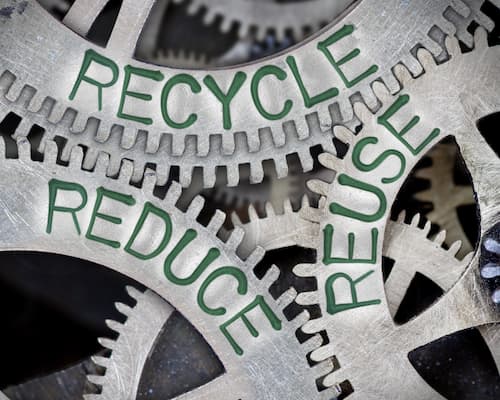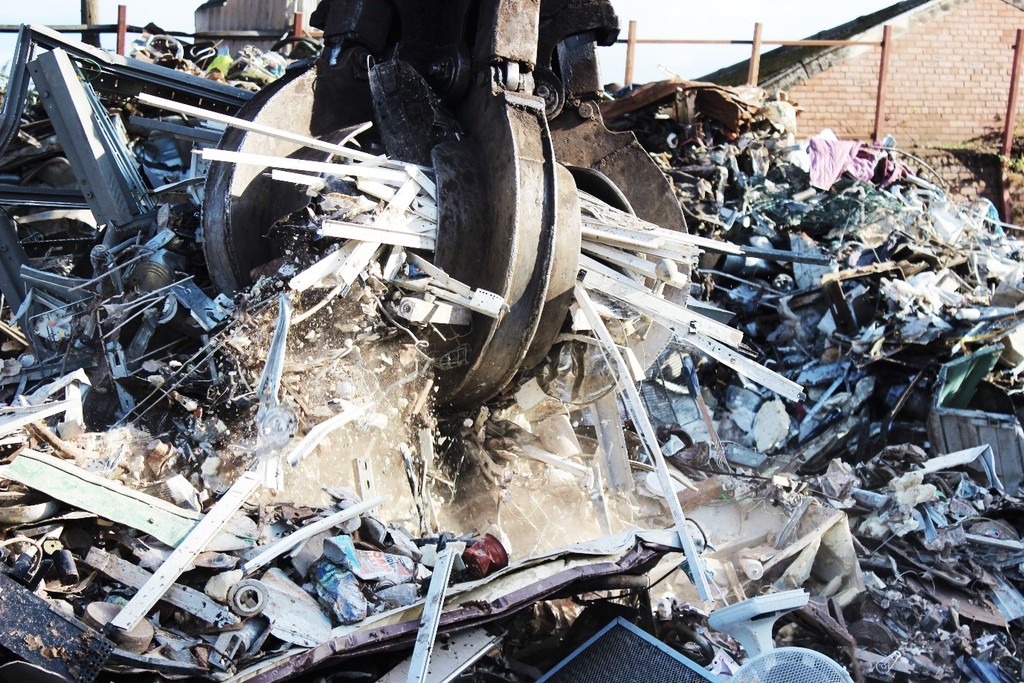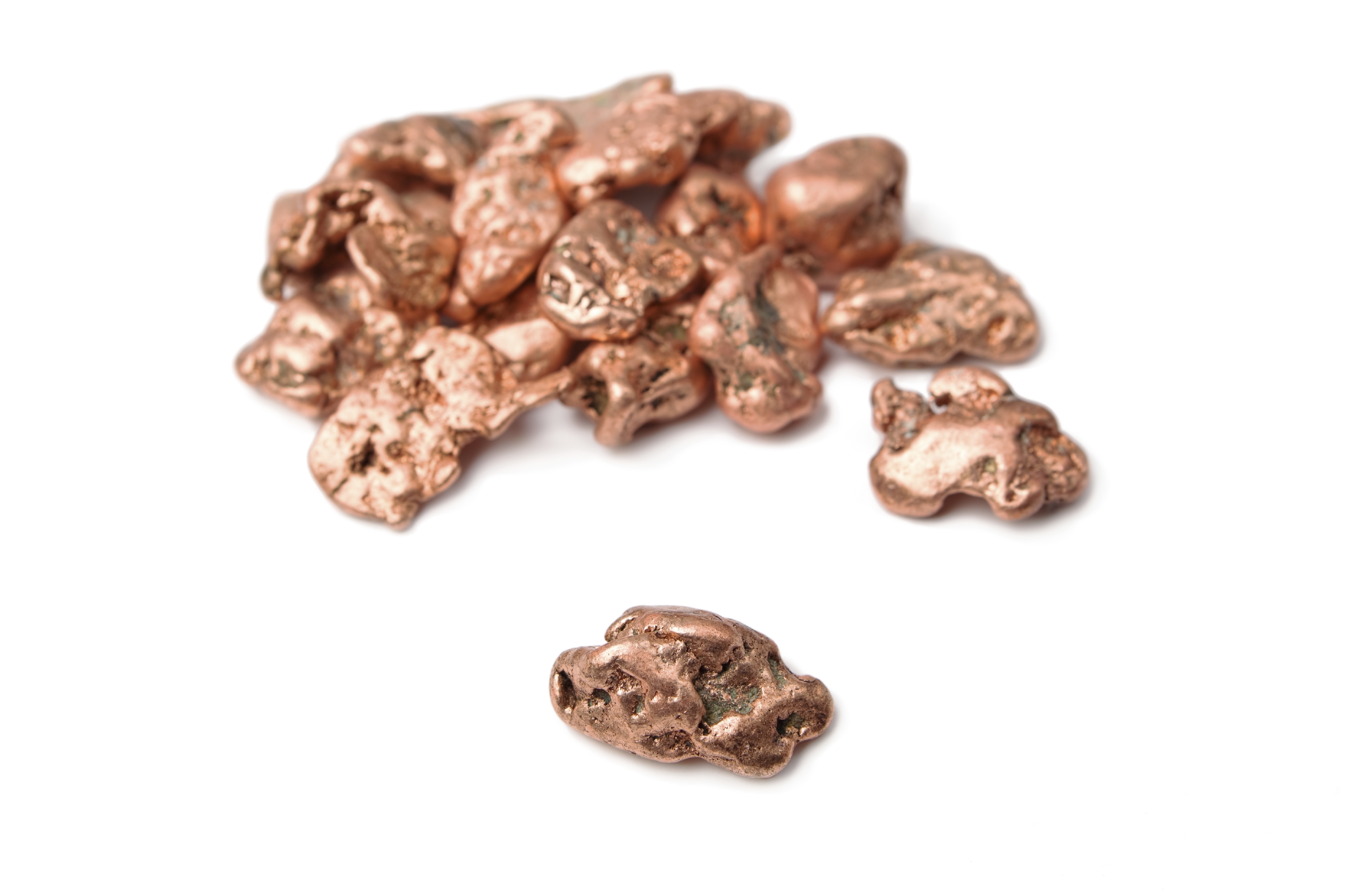More and more people are aware of their environmental impact and aim to reduce their carbon footprint. Many are now recycling but there is always more to be done. After all, even though recycling rates are rising, so is the planet’s population, which leads to more natural resources used, more products created and more waste.
In this article, we’re taking a look at some metal recycling facts you should know, and which can help you to learn more about this issue, be it when it comes to your end-of-life vehicles or your household items.
Fact 1 – Steel is the Most Recycled Metal in the World
Steel is a versatile material used for a variety of applications due to the fantastic features it offers (you can read more about this in our article “Metals and Their Properties: Steel”).
Steel products tend to have a lifespan of 35 to 40 years, after which they are scrapped. The UK produces around 10 million tonnes of scrap a year and about 80% of this is exported for processing to countries such as Turkey and China. The UK produces, approximately, 7 million tonnes of steel a year, which is less than half of current demand. This means that the nation could be self-sufficient in steel by investing in recycling.
Fact 2 – The UK Recycles Over 2.5 Billion Steel Cans Every Year
The UK is already taking measures towards becoming self-sufficient when it comes to steel recycling – over 2.5 billion cans are recycled every year, which is equivalent to a saving of 125,000 tonnes of solid waste annually.
Recycling steel can help to cut down CO2 emissions by 80% when compared to manufacturing steel from raw materials. In addition, you will also be saving water, since water consumption and pollution decrease by 40% and 76%, respectively. Around 25% of the steel used in new cars is from recycled steel.
Fact 3 – 75% of All Aluminium Produced is Still in Use
Aluminium is the third most abundant element in the earth’s crust and the second most used metal around the world. A staggering 75% of all aluminium ever made is still in use around the world, which can’t be said about other metals. The properties of aluminium make it a useful material for a range of industries, from aerospace to the food and drinks sector – in fact, 90% of all drinks cans sold in the UK are made of this metal.
Fact 4 – Aluminium Can Be Recycled Endlessly
By recycling just 1kg of aluminium, you can save 8kg of bauxite (the raw material used to make aluminium), 4kg of chemical products and 14 kW of electricity. If we recycle one tonne of aluminium, we can save 9 tonnes of CO2 emissions and 4 tonnes of bauxite. Manufacturing one can of aluminium from raw materials will take the same amount of energy as recycling 20 cans.
Aluminium cans can be recycled in their entirety and as many times as you want without losing quality; they can also be back on shelves in as little as two months. With 24 million tonnes of aluminium produced every year, it’s clear that recycling this metal is crucial to reducing our carbon footprint.
Fact 5 – Global Demand for Copper Skyrocketed by 250% Since 1960
Just like steel and aluminium, copper can also be recycled without losing performance. Recycled copper can be found in many different sectors and environments, such as roofing and cladding, trains, cookware and musical instruments. Because copper possesses excellent conductive properties, around 65% of this metal is used for electrical applications.
In order to meet the increasing global demands for copper, it’s crucial that we continue investing in recycling this metal. This is because recycling this metal saves up to 85% of energy when compared to creating it from scratch; in addition, using recycled copper can help reduce CO2 emissions by around 65%.
Fact 6 – Zinc is the Fourth Most Commonly-Used Metal
Zinc is easily recycled as well and often alloyed with materials such as brass and bronze (around 17% of zinc is used for this purpose). As the fourth most commonly used metal in the world, you can expect to find it in a variety of industries; zinc has many different applications and is used in batteries, paints and vehicles, for example, with cars containing around 10kg of this metal.
More than 90% of the global production of zinc comes from blended ores that contain metals such as lead and copper. The extraction process can take up to 76% more energy than recycling existing metal, so it’s important to ensure we scrap and recycle as much zinc as possible – almost 70% of zinc in end-of-life products is recycled, which is already a great figure.
Fact 7 – The UK Recycles Over 350,000 Tonnes of Plastic a Year
There is no denying that recycling plastic is extremely important. The UK is already recycling 350,000 tonnes of plastic a year, but we can always do more. For example, while 78% of plastic packaging is recovered, only 46% of this is recycled and only 31% of all plastic is recycled.
It takes 75% more energy to make a plastic bottle from ‘virgin’ materials when compared to making a bottle from recycled plastic. Recycled plastic can be used for a variety of applications; for instance, 25 recycled PET bottles can be used to manufacture an adult’s fleece market while a pair of jeans can contain an average of eight recycled plastic bottles.
At Morecambe Metals, we specialise in scrap metal recycling, so talk to us to discuss your metal recycling and processing needs, be it when it comes to scrap metal collection, end-of-life vehicles or industrial dismantling.





